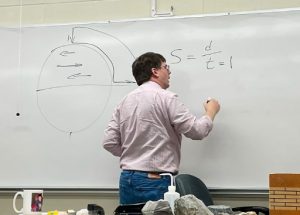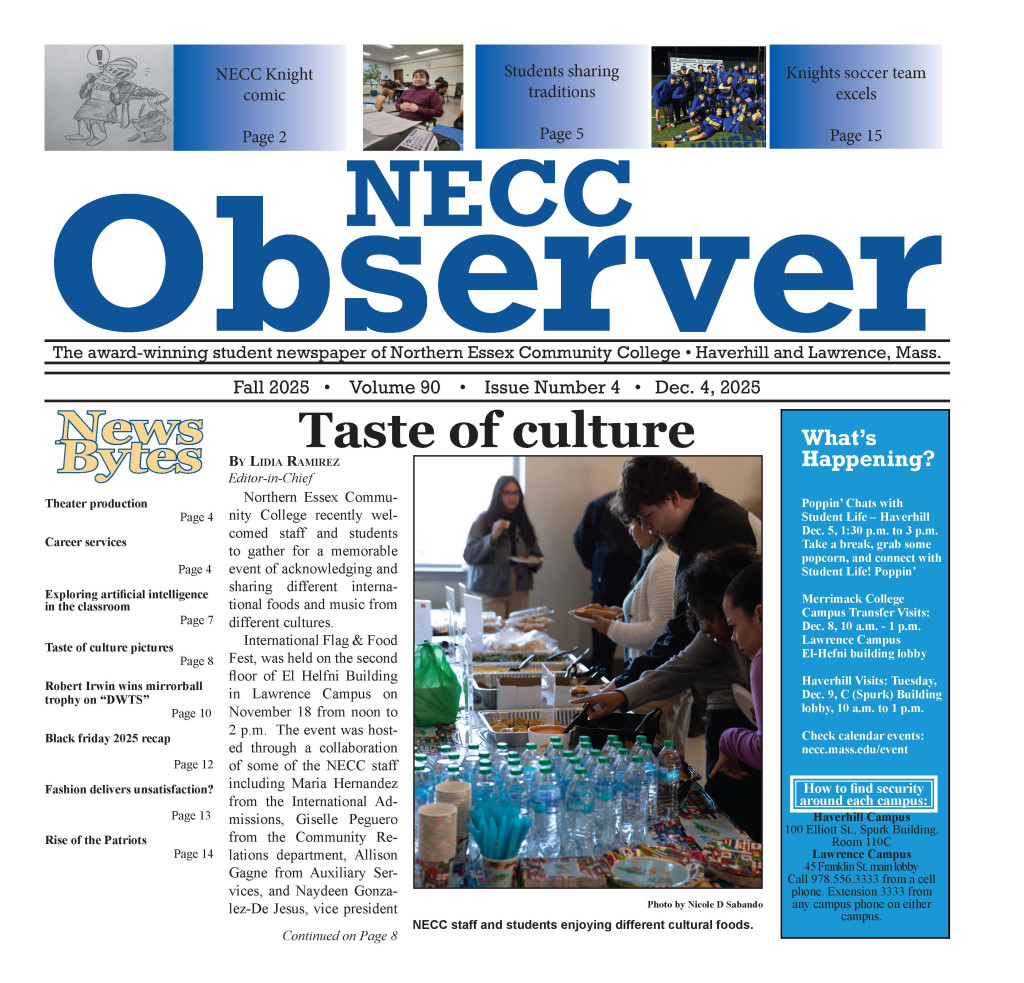Environmentalists find solutions towards global change
This week on A Deep Dive Into The Classroom, environmentalists at Northern Essex Community College are piling into the seats in room E263 to study air pollution and its effect on the Earth.

In order for the students to study the current “state of the planet,” Department of Natural Science Professor Mark Reinhold said he believes it is important for “students (to) understand the spheres (that are) involved” with the planet. The spheres of the Earth include: The lithosphere (land), atmosphere (air), biosphere (living organisms) and hydrosphere (water).
One of Earth’s spheres that is broken down into finer and thorough detail is the atmosphere. The Earth’s atmosphere has five significant layers and Reinhold’s Environmental Issues course’s mission is to study air pollution in the first layer of the atmosphere: The troposphere.
The students’ objective is to “look at evidence” that covers a variety of topics related to air pollution, such as carbon monoxide, sulfur dioxide, tropospheric ozone, lead, nitrogen dioxide and particulate pollution. The vital point in studying these topics is for the students to discover the reasoning behind air pollution in the troposphere, global issues associated with this type of pollution and identify how it can be reduced, said Reinhold.
One factor that comes into play when considering air pollution are the impacts of acid rain, which is a form of pollution. During one of Reinhold’s Environmental Issues classes he described the process of acid rain and how it works. To make this explanation more understandable, the professor conducted a visual presentation where he acquired a small bottle of acid in the classroom and poured it onto a rock. As a result, a chemical reaction occurred, which caused the rock to dissolve, erode and release a steaming sensation.
“Professor Reinhold’s enthusiasm” towards his course lectures, presentations and class engagement hold great significance to one student in particular, Clarie Brady, because it provides her with “a more in depth perspective about climate change,” said Brady.
Regardless of the small enrollment in the course, students have created tight knitted friendships that have strengthened their teamwork skills in order to guide them on a path of success to finding solutions towards positive environmental global change.

